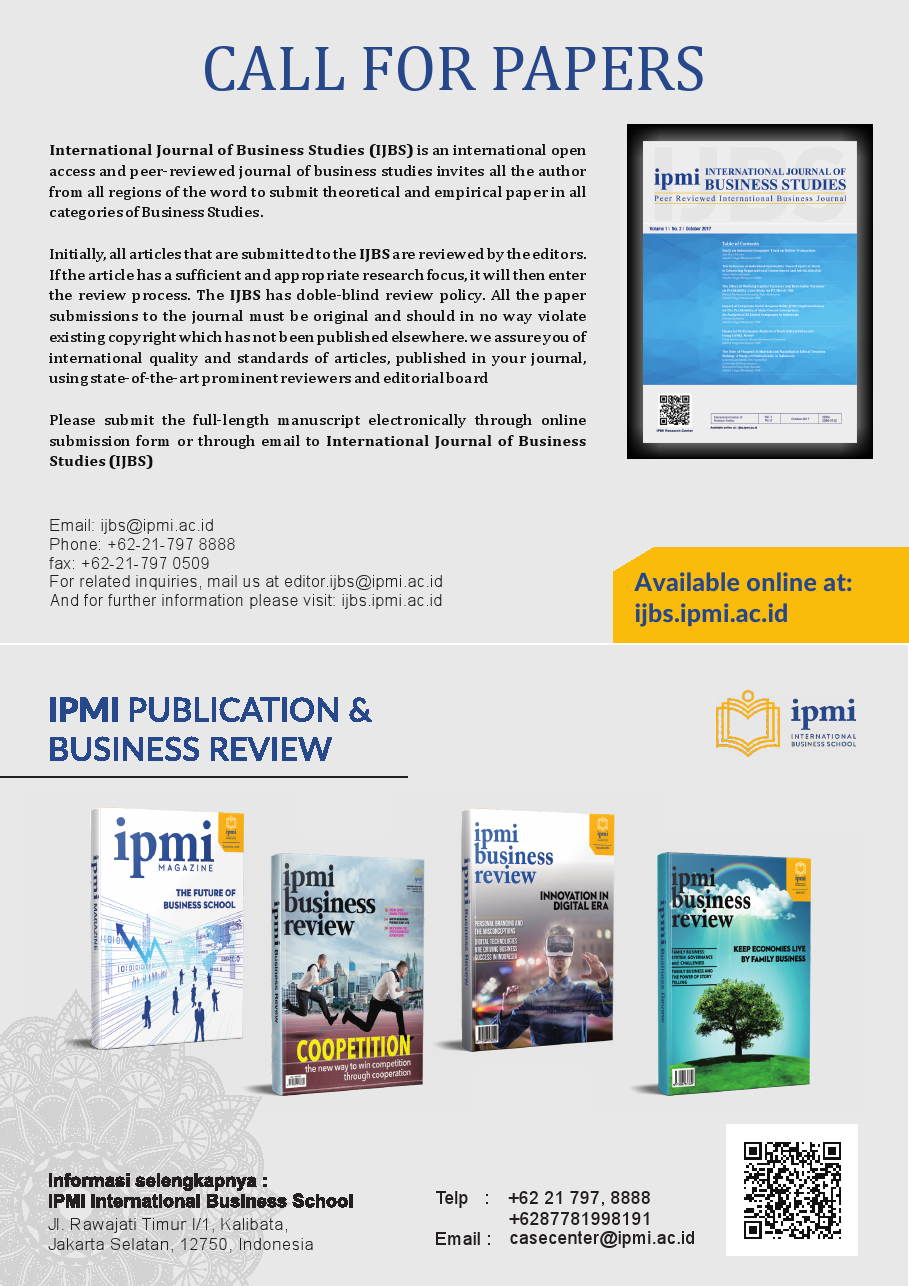The Influence of Reciprocity and Trust on Satisfaction of Members of Sharia Cooperatives in Indonesia: A Social Capital Perspective
DOI:
https://doi.org/10.32924/ijbs.v8i2.330Keywords:
Trust, Social Capital Theory, Sharia Cooperatives, Islamic micro finance, Reciprocity, Baitul Maal wa TamilAbstract
Islamic Micro Finance Institution in the form of sharia cooperatives called Baitul Maal wa Tamil or BMT have grown significantly in Indonesia in the past four decades, and have contributed to improvements of livelihood of their members and poverty eradication. Using the social capital theory, this study aims to investigate whether trust and reciprocity are factors that influence satisfaction of members BMTs in Indonesia. The study gathered 200 respondents from eight sharia cooperatives in six provinces of Indonesia. Using multiple regression models, the collected data was tested and further analyzed using SPSS 24.0 Software. This research found that Reciprocity and Trust have a positive and significant influence on the Satisfaction of sharia cooperative members. Sharia cooperative management can apply the results of this research to improve cooperative performance by building mutually beneficial and trusting relationships with its members. The results of this study can be generalized to sharia cooperatives, while the application to conventional cooperatives needs to be further studied. This research provides empirical evidence for the application of Social Capital Theory in explaining the factors influencing the satisfaction of sharia cooperative members that was not studied before.
Downloads
Submitted
Accepted
Published
How to Cite
Issue
Section
License

International Journal of Business Studies by Sekolah Tinggi Manajemen IPMI is licensed under a Creative Commons Attribution-ShareAlike 4.0 International License.
Authors who publish with this journal agree to the following terms:
1. Copyright Transfer Agreement Form can be downloaded HERE.
2. Authors retain copyright and grant the journal right of first publication with the work simultaneously licensed under a CC BY-SA Creative Commons Attribution-ShareAlike 4.0 International License that allows others to share the work with an acknowledgement of the work's authorship and initial publication in this journal.
3. Authors are able to enter into separate, additional contractual arrangements for the non-exclusive distribution of the journal's published version of the work (e.g., post it to an institutional repository or publish it in a book), with an acknowledgement of its initial publication in this journal.
4. Authors are permitted and encouraged to post their work online (e.g., in institutional repositories or on their website) prior to and during the submission process, as it can lead to productive exchanges, as well as earlier and greater citation of published work.















